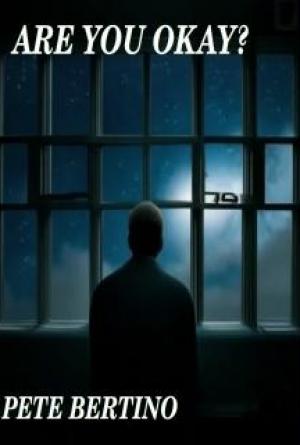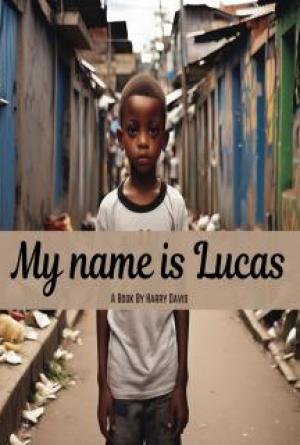FIFTEEN
John Harrington was not happy. He sensed that there truly was a story, and I was, in his words, “too spineless” to go public with it. I didn’t want to appear combative, but I insisted that it actually required more spine to make the choice I made. Allow me to elaborate. Among the things I learned this week, one fact stands out most prominently in my mind: Anyone with a press badge and access to news can write a story that puts some public figure in a decidedly defenseless position. Regardless whether the story being told is true, or whether research has been conducted to verify the details, going with what you’ve got is much easier than attempting to ascertain the accused’s version of the facts. Essentially, we in the media can charge, try and convict someone of wrongdoing without any due process or consideration of rights. And it is very easy to do so when you consider the power of the press — not to mention that it can also be handsomely profitable. As a matter of recourse, those we excoriate in this manner can respond by launching a civil suit for libel, slander or defamation, though public figures are legally considered fair game. But, even if they do succeed — after months or years and tens-of-thousands of dollars spent in their own defense — where can the victim go to get his or her reputation back? Of course, I did not trot this entire rationale out for John. That would have been pointless. I simply told him I’d made a judgment call, and that was that.
About half-past-three, after going through my usual daily research activities with the wire services, I headed home. With a little effort this evening, I will get my column written and submitted long before tomorrow afternoon’s deadline. But if not, I can always finish it in the morning. Maryanne and I will be leaving for Harbor Springs and the Republican Convention sometime after the noon hour. She has requested a half-day off work in order to accompany me up north. With the decision to put Kathy Nichols’ story behind me, my mind has been freed up to think about enjoying our time at the Boyne Highlands resort.
Maryanne will be glad to learn that I am no longer obsessed with the governor’s teenage indiscretions and his present manipulative sway. Perhaps he has been somewhat manipulative with me, but I believe that he has also been rather transparent at times, even somewhat vulnerable. It is a curious thing, human nature, and why we do the things we do.
I was home for over an hour working on my column when Maryanne arrived. She kissed me and asked about dinner. It didn’t matter, I said. I was making progress on my column and would just as soon wait an hour or two to eat. She closed the office door behind her, and I continued to write.
A Harvest of Truth
In the fall of the year a man’s heart turns toward the harvest. In age-old tradition, rooted in the more agriculturally dependent generations past, men and their families work from sun up to sundown in order to bring in the crops and then to process them for storage or for the market. And, although many of us city dwellers have lived our entire lives completely unaware of the gravity of this annual responsibility, it is nonetheless real to others — an obligatory ritual for the thousands of families in the farm communities of mid-Michigan. Consequently, in the golden days of autumn that lie ahead, many of these fine folks will be too busy harvesting crops to read articles such as this. They will be outside, hard at work.
But the harvest under consideration here is not a harvest of corn or wheat, or anything else edible or marketable as an agricultural product. Rather, it is about the product of our lives — the essence of what we have become in the course of living on this earth, and therefore have to give to others.
Like crops, we humans are each germinated from a tiny seed; we are given nourishment and care; the sun shines down upon us, and the rain refreshes us. And, as with crops, the time comes, after years of growth, education and experience, when fruit will be demanded of us.
Do you ever wonder, as I do, what we might give forth at these times of harvest? Can we offer someone else hope, or help, or direction in life? Can we provide sustenance to those who have endured a long stretch of pain or poverty? In our time on earth, have we reproduced ourselves in the form of good seed for future generations? If the truth of who we are, down deep, were brought to light, what would be our defining heritage?
Not so long ago, I began wondering about these things concerning myself. What am I all about on the inside? Unfortunately, this is not an easy thing to ascertain. Though I like to think of myself as loving, generous, kind, intelligent and… well, you get the picture, I cannot be certain that I truly am these things and not their evil opposites. In fact, though I hate to admit it, I sometimes act more like the evil twin brother I never had. And most people, if they were to be honest with themselves, would confess to the same sins.
Let’s consider the lowly cornstalk for a moment. Not everything that grows from the tiny kernel of corn a farmer plants in the ground is edible — it’s not all corn. There is the stalk, the husk, the cob — protective things, supportive things — all kinds of things that will not provide anyone with any nourishment. In fact, we have to employ the use of expensive harvesting machinery to strip off the parts of the cornstalk we cannot or will not use. These superfluous parts get in the way of the fruit, and it takes cutting and stripping and beating and threshing to get down to the corn.
And there, in the example of the cornstalk, lies the secret to who we are — complex beings wrapped up with layers and layers of “stuff.” Somewhere inside — deep down, protected and concealed — lies the truth. Unfortunately, it takes the pressures of life to shuck that truth out of us. Otherwise, we might get away with a life of pretending — pretending to be good, or kind, or generous, or honest, or some such thing that we, in fact, are not. But when such pressures come upon us, it is at those times that we act out of the true treasure of our hearts.
Now, the scary thought is that, deep down inside us, there exists more evil than good. And it is this evil that can come out when we are pressed, and shaken, and processed — at the harvest times. Though we may have ourselves convinced that we are “good people,” when the opportunity to do some good comes about, we might utterly fail the test and come up woefully short.
Looking beyond my own shortcomings, I have wondered the same concerning the politicians I frequently write about. What are they really like on the inside? Are the words they say just some cleverly crafted means of pretending to be something other than what they truly are? What would be revealed about these public figures and their well-groomed images if there were a harvest of truth?
Wednesday was a day of reckoning for one of these public figures — our governor, Colin Rierdon. With the State Senate planning a vote on the Right to Life Amendment (RLA), he risked his political future to take a stand, and in so doing, the governor revealed a part of who he truly is, deep down on the inside. Since the RLA bill was destined for a sound defeat in the House of Representatives anyway, the governor could have simply sat back and watched. But for reasons we may never know — perhaps out of obligation to those of us who have put our trust in him to lead us — he chose to take a huge, political risk and speak out in a passionate address to the Senate. And here is what we’ve come to know of Colin Rierdon as a result of that speech:
Freedom means more to him than simply a catchy political slogan; he will risk his reputation to defend it.
Dealing honestly and forthrightly with the abortion issue is more important than partisanship and political battle lines.
He believes abortion is a bad choice, and that we all, if we are honest with ourselves, know that this is so.
He does not believe another law is the answer to reducing the number of abortions in our state, or in our nation.
He does not believe that morality can be legislated.
He believes the abortion decision is a moral issue and a matter of the heart. And, if people are to change their actions, they must first have a change of heart.
He also believes that abortion is part of a larger, more complex problem in society that needs to be analyzed and dealt with as a whole.
In his speech to the Senate on Wednesday, the governor pointed the way for every one of us, showing us that we must work together to preserve freedom in the midst of conflicting values, beliefs, ambitions and the various means of solving the moral dilemmas we face.
Now that the truth of what Colin Rierdon believes about abortion is a matter of public record, all of us who care about this issue are the ones left with a decision to make. We can choose to mindlessly repeat the mantras of our opposing views — pro-life or pro-choice, essentially denying the enormous complexity of the problem. We can pretend that there is a single-threaded solution such as a law, a Supreme Court decision or a constitutional amendment. We can refuse to accept that the secret to successful democracy is found in collaboration, consensus and compromise under the big, protective tent of freedom. Or we can receive what was given us by the governor — a vote of confidence and encouragement for our liberty — and wrestle with the issue in the arena where true and lasting change can be achieved — in our hearts.
In the process of attempting to preserve the lives and freedoms of the unborn, let us be careful not to destroy the life and freedom of our society.
In this harvest season, the fruit produced by the life of our governor, Colin Rierdon, has both lit our pathway to the twenty-first century and made a down payment on our future as a freedom-loving people. With this harvest of truth, we can lay up a treasure for the oncoming winter of discontent.
And yes, there will be discontent, as many remain unhappy that the moral quandary posed by abortion is far from solved. Many, for example, will not rest until abortions cease across this vast and diverse land.
Nevertheless, we all witnessed this past Wednesday that our governor will not bargain away our freedom for the sake of political gain or to secure a constitutional stronghold on behalf of a strident group. And the majority of our duly elected senators and representatives agreed.
Colin Rierdon campaigned and was elected on a platform of freedom. One year later, at harvest time, he has begun to yield the fruit we naturally would expect from his administration — a harvest of freedom.
And to extend the well-known axiom: This truth shall KEEP us free!
Maryanne whipped up a Mexican feast: tacos, refried beans and guacamole, and while we ate, I replayed the day’s events, trying to recapture the defining moments: my conversations with John Harrington and the governor, Colin’s address and the vote in the senate. It had been a momentous day for me, full of irony and revelation. Maryanne said that she was glad to see me at peace, now that I had decided not to publish Kathy Nichols’ story. She remained somewhat skeptical, though, about whether Colin had actually undergone some degree of meaningful change, or if he had merely been playacting for my benefit. I agreed that he was certainly skilled enough to fool me, but I am no expert in psychology or the dynamics of manipulation. “Still, my gut tells me he was sincere,” I said.
We called Dan to tell him the news. He was elated. In fact, although he is not the type to force his opinions on others, especially his friends, he reminded me that he never viewed Kathy’s story as newsworthy. And he genuinely feared the repercussions I would have surely felt in the aftermath of telling it. Now that I was able to think more clearly and objectively, I agreed with him. It was not the kind of news I wanted to be associated with. But the story had come to me, and I had a responsibility to deal with it. We agreed that I had done the right thing to wrestle with it, and with the governor as I did, to determine the proper course of action. When I told Dan about the way Colin handled his obligation to Kathy by going public with a passionate pro-choice stance, he chuckled. “All’s well that ends well,” he said.
He was right about it being over. Though I still held the power to publish the story, and could resurrect it at any time, I knew I never would. My decision was made. There was nothing more to consider, nothing that would change my mind.
Dan agreed to get together upon our return from Harbor Springs. He wished us well on the trip up north.
Maryanne and I quickly did up the dishes to the percussive swing of the Gene Harris quartet. I was feeling like I had been set free from incarceration. But I knew that the prison had been one of my own making, one that existed entirely within my imagination, though its effects were nonetheless real — effects in the form of feelings of being trapped, watched, mistreated and alone. I had been overcome by a deluge of such feelings throughout the past week. Now they were gone, and I was a free man once again.
Maryanne hung the dishtowel and took my hand. She had some intentions. As we ascended the stairs to our private heaven, she told me how proud I had made her feel. How I had proven to her all over again that she married the right guy. She said I was “one in a million.” But, when I looked into her eyes, I knew that I was the lucky one in this partnership.
As I head the Bravada north off westbound M-21 and onto the US-127 freeway, I remember that it was only a little over a year ago that this stretch of four-lane did not exist. Seasonal traffic bound for the north country would bottleneck down to gridlock at the traffic light in St. Johns. Someone told me that this bypass had been proposed and shepherded through the legislature by a former governor after he’d gotten caught in traffic for the umpteenth time on his way up north several summers ago. It became one of his pet projects. In Michigan, as in most states, the governor usually gets what the governor wants. Nevertheless, today, many thousands will testify (myself included) that this highway was a worthwhile project.
Maryanne is working the Ledger’s crossword puzzle to keep herself occupied. Earlier, I set a Van Morrison CD to spin on the car stereo. Van has been bending every note on the scale, cooking up everything to a deep shade of blue. We are whizzing along now, passing snug family farms on the rolling countryside. Here and there, green tractors and harvesters can be seen crawling along before clouds of dust that drift away and dissipate on the autumn breeze. It is a mostly cloudy day. Every so often, though, a patch of blue sky can be seen through the overhead canopy of cumulus cotton.
“I have a surprise for you,” I announce.
“You do?” Maryanne replies. “And what might that be?”
“This morning I called a travel agent and made some tentative arrangements for a trip to Europe next summer.”
“What kind of arrangements?”
“Oh, a mere three weeks, starting in late June.”
“We were going to Mackinaw then.” She says this in a protesting manner.
“Of course, I can cancel the arrangements; they’re just tentative.”
“Maybe you should tell me more.”
“We would fly into London, see...on the seventeenth...that’s a Thursday. We would get Eurail passes, so we could travel anywhere we wanted on the continent. Then we’d return three weeks later on the eighth of July. The agent said she’d send along some information on bed and breakfasts and various attractions, so we could plot out an itinerary and reserve some rooms in advance.”
“But, Chip, this is so sudden. And how would you be able to take three weeks off?”
“The world won’t stop without me. Besides, I’m sure I can work something out with the Ledger.” I glance over to try to read her expression. “I thought you’d be excited. Don’t you want to go?”
There is a moment of silence, and I look over at her again. A single tear has formed in the corner of her left eye. She wipes it away before it can roll down her cheek. “I love you, Chip,” she says. “Of course, I want to go. But I want to plan it too. I don’t want you having all the fun.”
“Oh, is that all?” I remark, with some measure of relief. “No problem. I am counting on you to pick out all the hot spots. We’ll work on it together.”
“Okay then, I’m in.” She sniffs and turns away from me in favor of the pastoral scene just beyond the shoulder of the highway. “But I’m going to make you pay for running the first lap without me.”
“You’re going to have to catch up with me first.”
“You don’t think I can catch up with you?”
“We’ll see.”
In a matter of an hour or so, we will have passed the imaginary line that divides Michigan’s Lower Peninsula into northern and southern halves. Those of us who live in the southern half regard the north as a playground of sorts. And, to be sure, tourism is the primary industry in the north country. It is a veritable wonderland of lakes and rivers and woods and resort properties. Summers are for boating, windsurfing, golf and general loafing around the family cottage; winters for skiing and snowmobiling. Early fall is for color tours and the celebration of the harvest. Then, in November, hunting the prolific white-tailed deer becomes serious and not-so-serious business, along with male bonding over nightlong poker games and cases of beer. Only for a few months in the springtime are the major venues empty of tourists. During March and April, most winter-weary Michiganders are in Florida or the Caribbean soaking up the sun they have been missing for weeks and months.
Somewhere near Clare the topography changes, the soil goes sandy and the farming landscape gives way to stands of beech and birch and eventually oak. Maples and pines abound everywhere, of course. We are on the front end of the color season. Hints of the oncoming display of nature’s most spectacular show appear in the fence rows as we speed north.
I muse at the fact that we’ll soon cross the 45th parallel on our trek northward, the halfway point between the equator and the North Pole. This specific latitude has always seemed significant to me, but so much more now, in light of my recent observations and experiences. It’s all about balance, equanimity, moderation and tolerance, and how I wish these concepts could find some traction in the current political landscape. But I fear the symbolism of 45 degrees north latitude might be lost on those who most need to grasp its larger meaning. Nevertheless, another column in this vein might be worth writing. I’ll give that some thought.
We will join up with I-75 just before Grayling and, less than two hours from there, we’ll be winding our way through the noble old city of Petoskey and around the Little Traverse Bay on approach to our destination. Before the sun sets over Harbor Springs, Mars and I will be dining at one of our favorite restaurants, situated in a former private residence on Main Street. I made the reservation this morning. Maryanne has yet to learn about dinner, so she is in for another surprise — one that she will no doubt appreciate. I’ll wait an hour or so to tell her.
It’s hard to predict how the convention will shape up now: Whose ideas will dominate; which issues will emerge as campaign material for the legislators seeking reelection next year; how much of the event will consist of substantive debate over real issues as opposed to scripted marketing rhetoric. In his remarks yesterday, Colin probably reshuffled at least one or two of the planned priorities. Ironically, I suspect that the non-political, nonpartisan leadership he demonstrated in the senate yesterday may actually work against him within the Republican Party. There isn’t much need for statesmanship when one is attempting to win the war of ideas. A bargaining table in downtown Jerusalem for Mid East peace negotiations would be just about as useful.
Whatever the tone of this weekend’s convention, however, I won’t have much difficulty finding something to write about. There may even be enough of a human interest cache there for me to pen an entire week’s worth of columns for the Ledger, perhaps even something worthy of syndication around the state.
I break the silence, “You know it was exactly a week ago that I wondered what the governor’s freedom train was really all about. If you had told me then that, within a few days time, I’d be given the chance to expose the whole thing as a charade, and take the governor down in the process, I never would have believed you. What a difference a week can make.”
“You wanted to know the truth about him. Now you do. But, you don’t have any regrets about your decision, do you?”
“No regrets. It’s just amazing to me how complex people are, and how hard it is to figure them out.”
“Perhaps you should write about that, maybe in a book or something. You know, tell the story, just change all the names to protect the innocent parties.”
I think for a moment, then reply to her. “There are no innocent parties, my love. Besides, I don’t think anyone would believe this story, or understand why I chose to walk away from such big news. Truth can be far stranger than fiction.”
“You’re probably right,” Maryanne says, as she lays her head against my shoulder. “But, strange as that may be, you won’t soon forget about what happened this week.”
“No, I won’t.”
FIN







